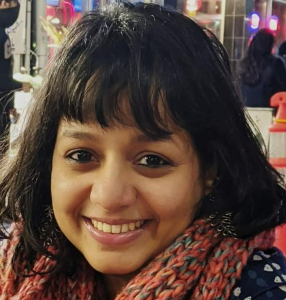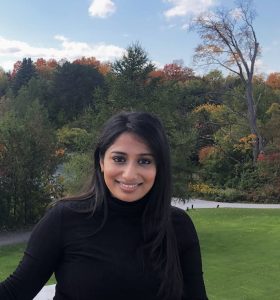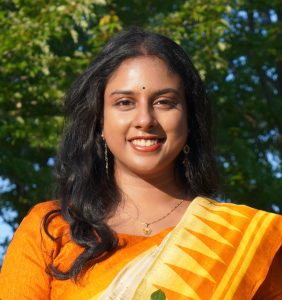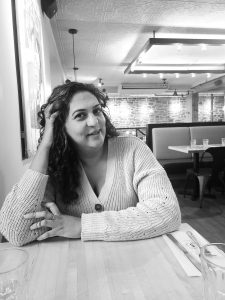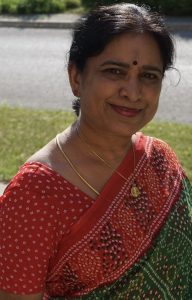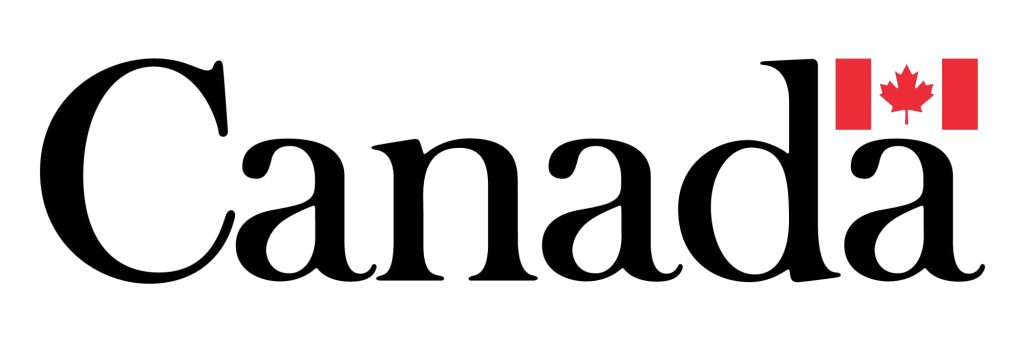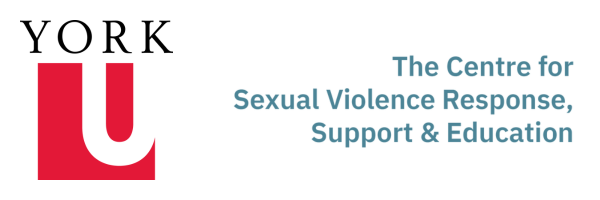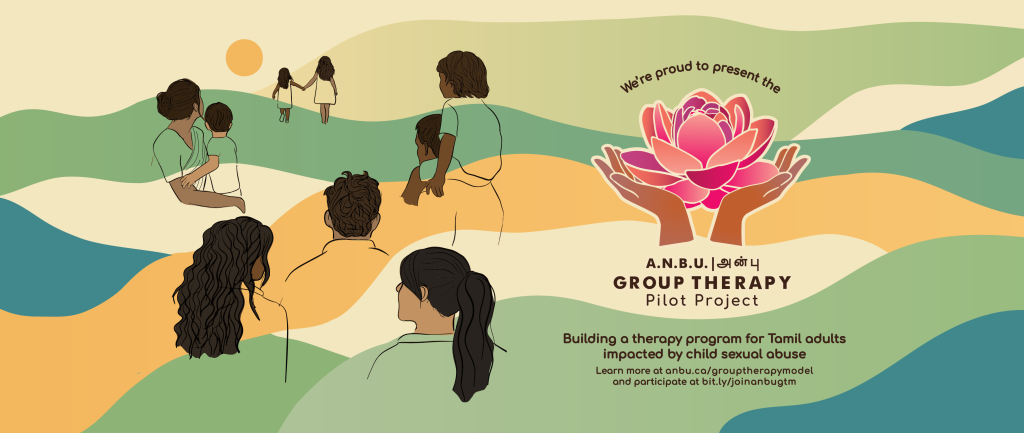
If you are a Tamil adult impacted by child sexual abuse, you are invited to participate in the Group Therapy Pilot Project for Tamil adults impacted by child sexual abuse. This project by Abuse Never Becomes Us (A.N.B.U.) அன்பு is a first-of-its-kind research initiative for the Tamil community.
“Participating in the Group Therapy Sessions offered by ANBU was the best decision I made for myself. I never realized how much I was still carrying my trauma and how much it was affecting my peace of mind and emotions. I felt seen, supported and empowered in my experience. It has helped paved the way to real changes I have made to my life and relationships and I will always be very grateful for this experience.”
Anonymous A.N.B.U. Group Therapy Participant
Announcing our next Group Therapy phase taking place in Fall 2024.
Participation involves attending 10 Group Therapy Sessions on Monday evenings from September 23 to December 02, 2024.
Dates: Sept 23, Sept 30, Oct 7, 21, 28, Nov 4, 11, 18, 25, and Dec 2
Times: 6-9 PM
Sessions will take place in Markham (Kennedy Rd and 14th Ave, south of Hwy 407)
Your participation in the group therapy program will be kept confidential.
About the project
What is CSA?
Child Sexual Abuse (CSA) is defined as the inappropriate exposure or subjection of a child to sexual material, contact, activity, or behaviour. Anyone, no matter their culture, race, gender, or other identity can experience CSA. The taboo and stigma associated with abuse as well as the intergenerational ripple effect of abuse is rampant within the Tamil community, as it is within many communities.
What is the A.N.B.U. Group Therapy Pilot Project?
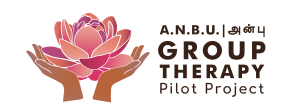
A.N.B.U., in collaboration with The Gatehouse and York University’s Centre for Sexual Violence Response, Support and Education, is conducting a first-of-its-kind research project developing a Group Therapy Model. This model is aimed at creating linguistically and culturally appropriate spaces for adult survivors of CSA in the Tamil community to begin their healing journeys.
How does the research take place?
Over the next 2 years, A.N.B.U. will conduct three phases of group therapy and individual therapy sessions (as needed) for adult survivors of CSA within the Tamil diaspora. Each phase will have a new group of participants. With the guidance of an expert evaluator, this research project will track and incorporate improvements and make changes to ultimately take us closer to creating a group therapy model that reflects and serves the needs of survivors and those impacted by CSA in the Tamil diaspora.
Who can participate?
This project welcomes participants who
- identify as Tamil,
- are 18 years old or above, and
- have experienced or been impacted by occurrence of childhood sexual abuse in their community.
If you have questions about participation or eligibility, please write to wageproject@anbu.ca.
What will participants experience in this research project?
Each phase will engage participants over a period of about 10 weeks (1 group therapy session per week). These sessions will be facilitated by a Registered Psychotherapist from the Tamil community. This project is created by Tamil people for Tamil people.
The activities in this project will be designed specifically to support survivors of CSA or those impacted by it. We hope that each group therapy session (and individual therapy session) will help participants:
- Access a safer space to build culturally relevant knowledge on CSA.
- Discover tools to find their voice and begin their healing journeys.
- Form a sense of community and belonging with other adult survivors impacted by CSA.
The A.N.B.U. Group Therapy Model is the first step to a bigger goal!
Our hope is that this model created for the Tamil community over a two-year period can serve as a blueprint to design models for other racialized and equity-seeking communities.
Community Needs Assessment
We are at the end of one of the most important phases of the project: Community Needs Assessment. What are the needs of the Tamil community when it comes to supporting adult survivors of CSA? Stay tuned to learn more about some findings from our Needs Assessment process!
Objectives of the Assessment
Before developing this model, we must learn what our Tamil community currently understands about child sexual abuse (CSA), and what needs and hopes we have when it comes to seeking support and healing. This Community Needs Survey will help us fulfill the following learning objectives for A.N.B.U., in relation to CSA in the Tamil community:
- Determining broad areas of knowledge and understanding that the Tamil community in the GTA currently has about CSA. This will help A.N.B.U. identify the educational components of the A.N.B.U. Group Therapy Model that would support in building community-specific information and understanding of CSA.
- Identifying the knowledge and services that the Tamil community seeks to support their healing journeys. This will help A.N.B.U. identify and incorporate resources to help participants discover their own tools for resiliency and healing.
- Identifying the challenges and barriers the Tamil community experiences in accessing the support they seek. This will help ANBU provide accessible information that supports Tamil peoples’ healing journey.
Group Therapy Session Phases
The research project will be built by offering therapy programming for the community in 3 phases over 2 years. This means individuals seeking to engage in group therapy can access programs during these times at 3 different locations across the GTA as follows:
- Fall 2023 in Scarborough
This phase is now complete! We are so grateful to the participants who placed their faith in A.N.B.U. and embarked on their healing journeys through this process and also shared their feedback with us to further support our research goals.
- Spring/Summer 2024 in North York
Registrations for this phase are now closed, and the group is currently in progress.
- Fall 2024 in Markham
Sign up for our upcoming and final phase here.
While the main approach to therapy will be in groups, individual therapy can be made available as appropriate and as required. Therapy will be offered using mixed modalities including arts-based methods.
Scroll to the top of the page for details about our ongoing phase and how you can participate!
Project staff
Swetha Ranganathan (she/her), Project and Research Coordinator
Swetha is a nonprofit manager and an advocate for creating participatory, collaborative spaces for community learning. Swetha has a Bachelor’s degree in Computer Engineering and a Master’s degree in Social Entrepreneurship. She is the co-founder of Apni Shala Foundation, a pioneer of the mental health movement in India. She is also a Theatre of the Oppressed facilitator, and an arts administrator. Over the past decade she has worked in the space of education, mental health, theatre, and the arts in India and Canada.
Anujah Posarajah (she/her), Registered Psychotherapist
Anujah is a Registered Psychotherapist in good standing with the College of Registered Psychotherapists of Ontario. As part of ANBU's Group Therapy Model, Anujah will be conducting group and individual psychotherapy sessions for adult survivors of childhood sexual abuse in the Tamil community. She will be helping with the development and the implementation of therapeutic interventions and group therapy models that will be tailored to the needs of the community and individuals. Anujah holds an MSc in Clinical Psychology from Kingston University London in the United Kingdom, and a BSc in the Specialist Program in Psychology from U of T St. George. She has been practicing for 7 years in the province of Ontario and is currently working as a Family Therapist at Southlake Regional Health Centre in the Child and Adolescent Eating Disorder Unit. She is also working as a therapist in private practice. Anujah is trained in individual therapy, group therapy, couples counseling, and family therapy. Over the years she has worked closely with clients struggling with addictions, eating disorders, depression, anxiety, and childhood trauma. Anujah's work is anchored in Cognitive Behavioral Therapy (CBT) however, she enjoys incorporating Dialectical Behavior Therapy (DBT), Family Based Treatment, solution focused, attachment based theories, trauma focused therapy, art therapy and mindfulness in her practice.
Arumitha Sasiharan (she/her), Graphic Designer
Arumitha enjoys working with teams for meaningful causes, and bringing life to information through design. Having recently finished an undergraduate degree at University of Toronto, Arumitha is eager to continue pursuing art professionally. Outside of work, she loves to paint, garden, and cook. Arumitha is an active supporter of art education and volunteers within the Tamil community.
Manivillie Kanagasabapathy (she/her), Project Evaluator
Manivillie is a policy and program development specialist with over 15 years in strategic policy development, nonprofit program management, social justice, and advocacy work. She utilizes her diverse experience working with marginalized and at-risk communities to develop out-of-the-box solutions for communities and organizations with resource constraints. Known for delivering high-quality projects that meet and surpass funder requirements, Manivillie has helped small nonprofits achieve their program mandate and organization vision and mission. She identifies alignments to create growth and partnership opportunities for organizations assisting businesses to identify new avenues for expansion. Manivillie graduated with Honours Bachelor of Environmental Studies at York University in 2003 and went on to do her Master of Arts in Anthropology in 2006 at Carleton University and Master of Public Policy, Administration and Law in 2013 at York University. Her research has focused on providing access to community support for racialized and marginalized individuals at vulnerable positions of risk.
Anushya Karthigesu (she/her), Translator
Anushya has a flair for languages, arts, culture, and community. She is a former member of the Sri Lanka Administrative Service and a graduate (Bachelor of Arts) of the University of Jaffna.
Frequently Asked Questions
Who can participate?
This program is for anyone who is:
- 18+
- identifies as Tamil
- is a survivor of childhood sexual abuse or someone impacted by it
- is seeking support to embark on their healing journey
Is there a fee to participate?
This project is fully funded by Women and Gender Equality Canada. Participation is therefore free. We will also provide reimbursement for public transit fare incurred when commuting to the group therapy sessions.
How many people will be in the group?
The groups will be limited to a maximum of 10 participants.
Is the group open to people from all genders and/or sexual identities?
Since childhood sexual abuse can happen to individuals irrespective of their gender or sexual identities, the group therapy program welcomes Tamil adults identifying with diverse intersectional identities including those of gender, sexuality, and age.
Can I attend the group therapy sessions virtually?
No. All group therapy sessions in our upcoming Fall 2024 program require in-person participation at the specified location in Markham.
What data exactly are you collecting during the research?
The data collected during the research project is imperative to the building of a linguistically and culturally appropriate group therapy model for the Tamil community. The data that we will collect and document confidentially and anonymously:
- Participant count
- Feedback on the linguistic and cultural appropriateness of the group therapy model
- Feedback on how participants were able to build awareness, skills, and access resources to continue their healing journeys.
- Recommendations made by participants on improvements needed to create a robust model for the community
We will not collect or document:
- Individual participant narratives or stories shared during the group therapy sessions or other interactions with A.N.B.U. staff
- Individual medical histories or data
What role do I play as a participant in this research?
Your journey as a participant in this research will look like this:
- Signing up by filling out this brief form
- Meeting the Therapist to make sure this program will support your unique needs in your healing journey
- Attending 10 group therapy sessions in-person in a small group, led by a Tamil-identifying psychotherapist to embark on your healing journey
- Accessing and taking home with you a program manual/workbook with information, activities, and resources for healing.
- Providing feedback on the program through 3 surveys and a focus group discussion with other participants focused on the theme of creating a robust group therapy model
Throughout the program, you will have opportunities to participate in activities that you feel comfortable doing, while stepping back when needed from anything you don’t feel comfortable, relevant, or helpful engaging in. Your story, your safety, your comfort, and your healing journey will always come first.
How is group therapy different from one-on-one sessions?
Individual therapy and group therapy are both directed towards creating a supportive path for healing for those impacted by childhood sexual abuse, but they may take different approaches.
While in individual therapy sessions, the approach is often catered and responds to an individual’s unique needs, A.N.B.U.'s group therapy program is guided by an evidence-informed program that is designed to support those impacted by CSA begin on their healing journeys, in a safe, respectful group setting.
While each individual’s needs for healing remain unique, A.N.B.U.’s trauma-informed approach facilitates a safe, respectful environment for participants in the group to:
- Share their stories as and when they feel comfortable doing so
- Listen to others’ narratives while gaining insights about their own lived experiences
- Engage in both individual and group-based therapy activities
- Do so in a participatory environment of trust, and at their own pace
- Feel a sense of community, feel supported, and know they are not alone
- Be continuously guided by an evidence-informed program that will help them embark on their healing journey
I’m not sure if I want to participate. What should I do?
If you have identified that you need support with your healing needs, but are unsure about this program, we suggest simply showing your interest in knowing more by filling out this short form and attending an initial meeting with our Tamil-identifying Therapist. At the meeting you will learn more about how the program works, what it entails, and answer any questions or concerns you have. You can then make an informed decision about whether you’d like to enroll in the group therapy sessions.
Alternatively, you can write to us at wageproject@anbu.ca or call/WhatsApp us at 289-980-3022 with any questions that you may have. Your interest in this program will always remain confidential.
I’m worried about people in my community knowing. How will A.N.B.U. practice confidentiality?
A.N.B.U. is based on the principle of a caring and supportive community. Confidentiality pertains to the treatment of information that an individual has disclosed in a relationship of trust, with the expectation that it will not be divulged to others without permission. As adults we can choose to share or disclose in confidence and to choose to listen to others’ disclosure or not.
All participants are required to understand and follow these guidelines to ensure confidentiality. This means that no person participating in this program shall reveal or speak of conversations between or about participants, or disclose the identities of our participants, in any manner, outside of this program. It is the policy of A.N.B.U. to maintain the confidentiality of our participants and all the participants’ information. We will not disclose information we obtain in confidence, unless ethically or legally required.
There are exceptions to confidentiality, including:
- If the facilitator(s) feel you are going to harm yourself or someone else.If the facilitator(s) feel you are going to harm or have harmed a child (e.g., child abuse and/or neglect).
- If there is a legal case, whereby the courts request information.
- Additional: If the participant (you) requests that your information be shared with a third party (therapist, family doctor, psychiatrist, courts/probation).
What if I’m too shy to speak? What if I don’t feel ready to share my story?
Readiness is a journey. You can walk it at your own pace. Group therapy encourages participants to partake in the healing process at a pace that they feel comfortable in. You are welcome to speak or share when you feel comfortable and equipped to do so, while listening and gaining perspective from others who are sharing at other times. You will not be asked to do anything without your consent and readiness.
Can I skip sessions if I don't feel up to it?
Attendance at weekly sessions is essential for creating and sustaining a positive group rapport and environment of trust and respect. If you don’t feel like you can attend a particular session, participants must notify A.N.B.U. of the absence in advance of the session. Anticipated or planned absences (such as for employment or personal reasons) must be disclosed to the facilitators at the onset of the group cycle and cannot exceed one session. Each presenting circumstance will be reviewed on a case-by-case basis. Participants who are unable to complete the group cycle for any reason may re-apply to participate in a subsequent group cycle.
I cannot join the Fall 2024 program. When do you plan to offer the program in the future?
The Fall offering of the group therapy program is the third and final offering of the group therapy program as part of the A.N.B.U. Group Therapy Pilot Project. But our work cannot end with the completion of this project! We are currently in the process of building resources for and planning programs for 2025 and beyond. We hope to announce available programming soon.
Funders
This project is funded by Women and Gender Equality Canada
Key Partnerships

Get in touch
Would you like to know more about the A.N.B.U. Group Therapy Pilot Project?
Contact our Project and Research Coordinator, Swetha Ranganathan:
wageproject@anbu.ca | 289-980-3022
